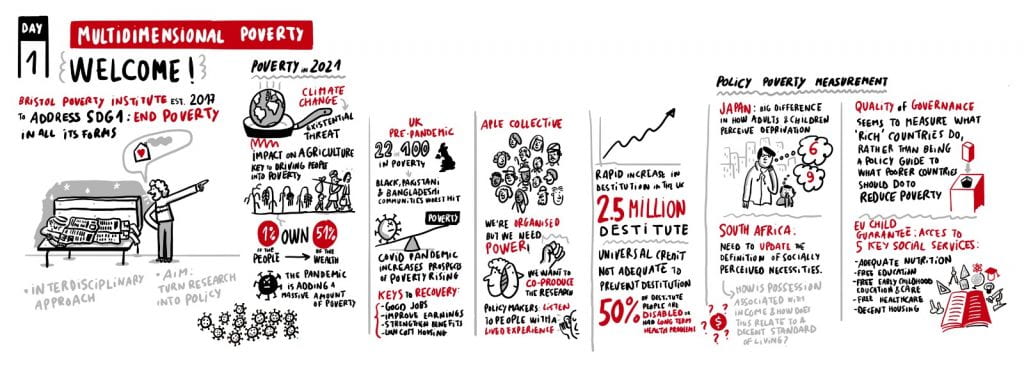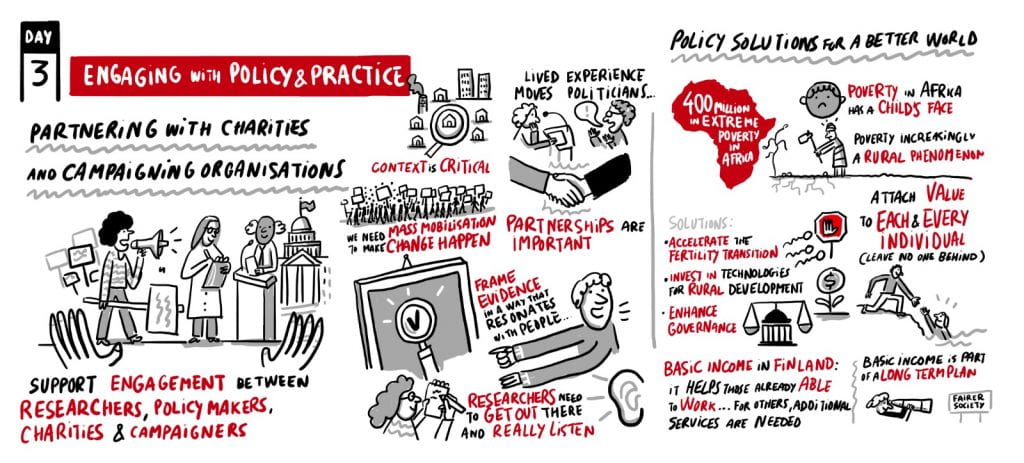Author: Dr Saffron Karlsen, Associate Professor in Sociology, Faculty of Social Sciences and Law, University of Bristol
Dr Saffron Karlsen explores some of the key issues that must be addressed if we are to establish a more complete picture of these inequalities and their drivers
Introduction
The evidence of ethnic inequalities in the number of COVID-related infections and deaths in the UK is compelling. Rates of hospital death among Bangladeshi, Black African and Pakistani people are between two and four times those of the UK’s white British population.
But discussions of how to address these inequalities are dominated by preconceived assumptions about their cause. Despite lacking empirical support, such assumptions form a barrier against a more comprehensive investigation which might offer effective solutions.
Why the focus on the causes of ethnic inequalities is too selective
Over the past year, media, politicians and many academics have emphasised the role of individual factors – for example, particular genes/biologies or cultures/behaviours – in the generation of ethnic inequalities in COVID-19. We have heard much about the effects of co-morbidities and multi-generational residential choices, but less about the impact of social exclusion and the ways in which the opportunities of many people in society are limited.
This ignores the wealth of evidence showing the overriding importance of such structural or societal factors, including that provided by more than 4,000 stakeholders to the Public Health England inquiry into ethnic inequalities in COVID-19 last year, where racism and its consequences were considered central.
Instead, conversations remain somewhat simplistic. There is little space to discuss the institutional racisms experienced in education, employment, housing, healthcare etc. Or how these and other racisms contribute to ethnic inequalities in experiences of deprivation, unemployment, over-qualification, low pay, and poorer health – including hypertension, diabetes and respiratory illness, with their well-publicised links to COVID-19 complications.
If we wish to establish a more complete picture of these inequalities and their drivers, there are several issues that need addressing:
(1) We must recognise there is no evidence that ethnic inequalities in COVID-19, or the vast majority of health conditions which vary by ethnicity, are explained by genetic or biological factors. The ethnic inequalities in COVID-19 infections and deaths we see in the UK and United States are not consistent around the globe. Indeed, the relatively unscathed experience of many African countries is, to date, considered among the few pandemic success stories.
(2) We must acknowledge that little can be learned about these patterns of inequality through sweeping categories such as ‘BAME’, ‘white/non-white’ – or even slightly more disaggregated ethnic categories such as ‘Indian’ and ‘Black African’, which still ignore the vast differences in experiences within these population groups. Of course, experiences also differ by age, gender, religion, class etc. To ensure we are asking the right questions of the right people, we must embed people with lived experience early in the research process.
(3) We must also understand that proving the importance of one COVID-19 risk factor will not necessarily negate another. There is often an assumption that to see a true ‘ethnic’ effect, we must remove the muddying effects of ‘deprivation’. But this ignores the inter-relationships between these experiences. More sensitive approaches recognise deprivation as one of the ways in which racism affects the health of those in racialised groups – and this holds true for COVID-19.
These inter-relationships can also help us understand other limitations with the traditional approaches to addressing ethnic inequalities. Methods which statistically adjust for deprivation assume we are comparing like with like – that these measures mean the same to everyone in our analytical models. But the value of (for example) educational outcomes and social class as proxies for socioeconomic position is questioned in the face of evidence of the greater ‘over-qualification’ experienced, or lower wages received, by people in ethnic minority groups for similar roles.
Similarly, broad markers of employment status might accommodate ethnic inequalities in unemployment, but not the particular economic and health consequences of the repeated and longer-term unemployment that is more common within some ethnic minority groups. And there is also a need here to recognise that routes into self-employment may not always tell a positive story, particularly for those experiencing racism in the workplace, or while trying to access it. In the same way, assumptions that owner-occupation of property indicates affluence/good health become less reliable among those excluded from renting by racism or other constraints.
Without taking these realities into account, we can’t be confident that we have adjusted for everything we think we have.
(4) The desire to identify simple (biological) solutions to COVID’s ethnic inequalities produces barriers against more in-depth exploration. The concentration of people in ethnic minority groups in key worker roles is no doubt part of the explanation for ethnic inequalities in COVID-19 among the general population. But it does not help us understand ethnic inequalities in deaths among health workers.
While we know these inequalities cannot be explained by genetics, such assumptions mean we still do not fully understand what does explain them. Do health workers with certain ethnicities undertake roles which put them at higher risk of infection than other health workers? What has been the impact of the reported ethnic inequalities in access to PPE on COVID-19 risk? Or the reliance on public transport to get to work?
Additional workplace risk assessments and removing people in ethnic minority groups from the frontline were an appropriate response to an emergency, buying us time to establish the cause of these disparities. But assumptions of biological risk have prevented this more detailed work being done – which may in turn lead to employer reticence when recruiting or promoting staff from ethnic minority groups, exacerbating existing ethnic inequalities in employment without justification.
(5) This selective focus also limits attention on other implications of the pandemic. People in ethnic minority groups already struggling to make ends meet commonly found themselves in occupations that were more vulnerable to the economic consequences of social distancing measures. Our understanding of the mental health, educational and other consequences of lockdowns that have been lived in situations of deprivation, food-scarcity, overcrowding or digital exclusion remains lacking, but must also be part of this story – along with the positive contributions made by local organisations and communities to mitigate these difficulties, and how we may build on this in future.
Conclusion: We cannot find solutions by ignoring the roots of the problem
Summer 2020: amid the terror of COVID-19, an opportunity. Never before had so many people been galvanised around the need for action – in the face of ethnic inequalities in COVID-19, and recognition of the myriad ways racism devastates lives and the true sources of the UK’s ethnic inequalities problems. Unfortunately, this energy risks being snuffed out even before it really gets going.
In their controversial government-commissioned report, Dr Tony Sewell et al were right to draw attention to the legacies of racism – but not for the reasons they expressed. Historical experiences of racism laid the ground for the distrust and disengagement of many of those in Britain’s racialised communities. But these concerns persist, because racist attitudes and behaviours continue to be repeated and reinforced by members of the public – and society’s representatives and leaders. We cannot address ethnic disparities, including in vaccine uptake, if we ignore the reasons for this widespread distrust.
The pandemic has already seen a dramatic rise in incidents of anti-Asian and other racist violence; other patterns will no doubt emerge with the latest ‘foreign’ variants. COVID-19 has exacerbated existing ethnic inequalities in many ways, some of which – such as the impact of vaccine passports – are yet to be felt. Sewell et al’s report makes it less likely that these issues will be given the attention they require, adding to the sense that Britain is a society for some and not others.
Dr Saffron Karlsen is Associate Professor in Sociology at the University of Bristol, and co-leads the Bristol Race Equality Network. A recording of Saffron’s talk on ‘Understanding Ethnic Inequalities in COVID-19’ at the Bristol Poverty Institute’s webinar on ‘Poverty Dimensions of the Disproportionate Impact of COVID-19 on Black, Asian and Minority Ethnic Communities’ can be found via the following link, alongside talks from Dr Andrea Barry (Joseph Rowntree Foundation), Ms Chiara Lodi (Black South West Network) and Dr Soumya Chattopadhyay (Overseas Development Institute): http://www.bristol.ac.uk/poverty-institute/key-resources/bpi-webinars/poverty-dimensions-of-the-impact-of-covid-19-on-bame-communities/
This blog post was originally posted on the International Public Policy Observatory (IPPO) blog and has been re-blogged here with their kind permission in recognition of the BPI’s role in supporting their collaboration with Dr Saffron Karlsen: https://covidandsociety.com/ethnic-inequalities-in-covid-19-acknowledge-multifaceted-influence-racism/






